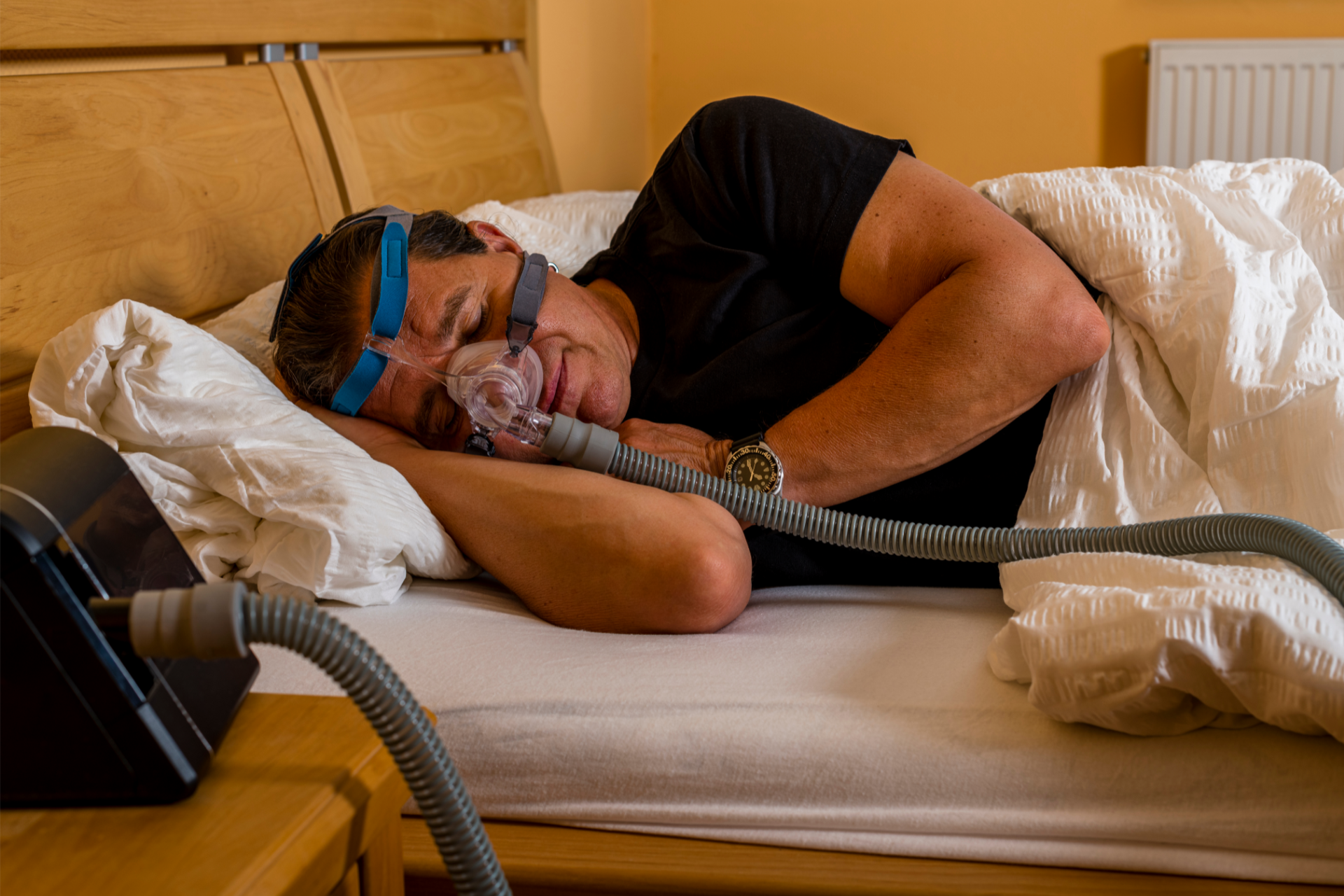If one of your parents has been using a CPAP machine for years to treat their sleep apnea, you may be left wondering if sleep apnea is genetic. What exactly are the genetic factors that go into your sleep patterns and habits?
A lot of what makes us what we are is thanks to genetics. Many of the traits you inherit from your parents have likely been with your family for generations— your body shape, your hair color, whether or not you can roll your tongue into a clover, all of those are traits that we can inherit from our parents.
There are a lot of factors that can make you more likely to have sleep apnea, some of which can be passed down from your parents, grandparents, or even earlier in your family tree.
Before we talk about sleep apnea and genetics, let’s talk about the disorder itself.
What is Sleep Apnea?
If you’re reading this article or have been reading our blog for a while, then you probably have an idea of what sleep apnea is. We’ll go over a few important basics just to make sure we are all on the same page.
Sleep apnea is a common but serious sleep disorder where your breathing pauses or stops multiple times per hour. There are three types of sleep apnea:
- Obstructive sleep apnea. This is the most common form of sleep apnea. It occurs when your throat muscles relax and obstruct your airways while you are sleeping.
- Central sleep apnea. Central sleep apnea occurs when your brain sends the wrong signals to your throat muscles while you sleep, causing them to block your airways.
- Complex sleep apnea. This is the least common form of sleep apnea. Complex sleep apnea occurs when you have both obstructive sleep apnea and central sleep apnea.
You may experience between 5 and 15 breathing interruptions per hour with mild sleep apnea. If you have severe sleep apnea, you can experience 30 or more breathing interruptions per hour! This can make getting a restful night’s sleep impossible, even if you got your full 7-9 hours.
While the causes of each form of sleep apnea can vary, they share the same symptoms and treatment.
Common Sleep Apnea Symptoms
Common sleep apnea symptoms include:
- Sleep-disordered breathing, including loud snoring
- Excessive daytime sleepiness
- Not feeling rested, even after a full night’s sleep
- Morning headaches
- Dry mouth or a sore throat in the morning
Left untreated, sleep apnea can worsen or even cause many serious health problems. Some of these include:
- Heart disease
- Mental health problems, such as depression or anxiety
- Heart failure
- Diabetes
- High blood pressure
- Erectile dysfunction
With all this in mind, let’s get to what you came here asking— is sleep apnea hereditary or genetic?
Is Sleep Apnea Genetic?
While there are genetic factors that can cause sleep apnea, your lifestyle factors and overall health are the greatest factors that can cause sleep apnea.
While research hasn’t shown a clear genetic link for sleep apnea, very specific genetic factors can make you more likely to develop the sleep disorder.
What Genetic Factors Cause Sleep Apnea?
Obstructive sleep apnea isn’t “just” a matter of your throat muscles obstructing your airways.
You look like your parents on the outside, and thanks to your physiology, you also look like them on the inside. The more family members you have that have obstructive sleep apnea, the more likely you are to develop it. This can be especially true if you are overweight or obese.
There are a number of physiological factors determined by genetics that can increase your risk of sleep apnea. Some of these include:
- A small lower jaw
- Large tonsils
- Hypothyroidism, or when your thyroid doesn’t produce enough of its hormones
- Having a thicker neck
- Being male— although sleep apnea and gender is its own topic
- Skull or facial abnormalities, such as a cleft palate
- Congenital conditions such as cerebral palsy or Down syndrome
Race may also play a role in whether or not you develop sleep apnea. A multi-ethnic study has found that people with African American, Hispanic, or Native American ancestry were at a higher risk of developing sleep apnea based on genetic factors. This is because of factors like craniofacial shape, genetic factors, and obesity. [1]
Testing For Sleep Apnea
More research is needed to know exactly why sleep apnea affects some groups of people more than others, but one thing is clear: if you are showing any risk factor for obstructive sleep apnea, it’s important to get tested for the disorder.
The National Sleep Foundation reports that up 20% of the population is affected by sleep apnea. However, around 85% of individuals with sleep apnea remain undiagnosed.
This is incredibly concerning when you consider the serious health risks associated with untreated sleep apnea. From short-term issues like grogginess and fatigue to long-term health complications such as heart attacks or strokes, seeking treatment for sleep apnea is crucial for your overall health.
If you have any close relatives with OSA, it may be a good idea to get tested for the disorder. The same goes for your children and close family members if you are currently being treated for sleep apnea. Early detection and proper treatment can make a world of difference for sleep health and overall well-being.
Is Sleep Apnea in Your Genes? Don’t Panic!
If you remember your parents snoring when you were a kid, you may have chalked that up to that just being how things are. And if that’s how things are, then there’s nothing to be done. Don’t fall into this mindset though; sleep apnea won’t go away on its own, and you can stop symptoms like snoring with the right treatment.
Sleep apnea can be genetic, but if it runs in your family, remember the immortal words of author Douglas Adams: “don’t panic.”
Even if your genes put you at a higher risk for sleep apnea, there are ways for you to reduce that risk and breathe better in the process.
Prevention is often the best cure, and taking those vital steps— as well as getting early testing— can help you breathe a sigh of relief and rest easy during the night. If you are diagnosed with sleep apnea though, finding the right treatment, such as CPAP therapy, is infinitely easier once you know that you have the disorder.
Not sure if you have sleep apnea? Take our sleep apnea quiz. It can help you make better sense of your symptoms so you can discuss them with your doctor or a sleep specialist.
If needed, a sleep specialist may recommend an overnight sleep study to evaluate your sleep patterns and determine whether or not sleep apnea is ruining your rest.
If you’re worried about your poor sleep, contact us at the Sleep Centers of Middle Tennessee today to schedule a consultation. You can still get a good night’s sleep, even if you have a sleep disorder— we can help.
References
- Dudley, Katherine A, and Sanjay R Patel. “Disparities and Genetic Risk Factors in Obstructive Sleep Apnea.” U.S. National Library of Medicine, Sleep Medicine, Feb. 2016, www.ncbi.nlm.nih.gov/pmc/articles/PMC4602395/





